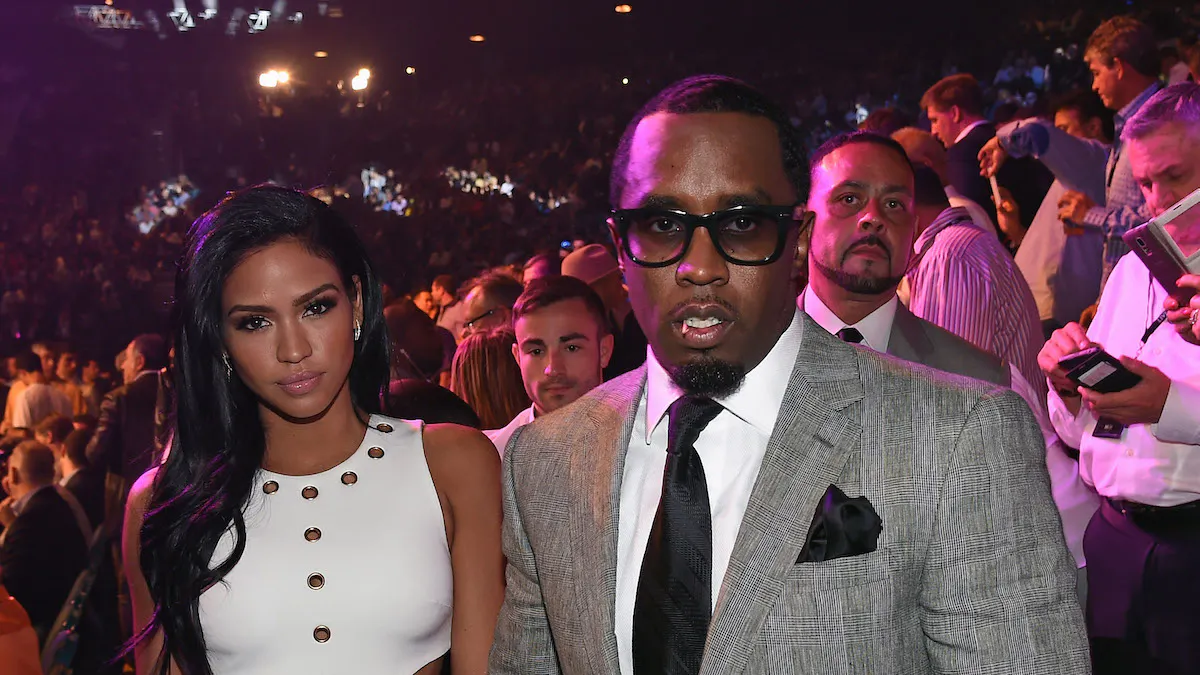As a survivor of sex trafficking, I am following Sean “Diddy” Combs’ trial very closely.
It may seem obvious why this trial matters so much to survivors like me. But there’s more to it than simply bringing predators like Diddy to justice.
In the 1990s and early 2000s, as Sean Combs rose to fame as a hip-hop artist and producer, hip hop itself underwent a transformation — something oftentimes credited to Diddy himself. Lyrics shifted to more directly glamorize street life, often portraying pimps as powerful, enviable figures and the women and girls they exploited as mere accessories and products.
To many, these were just lyrics: hyperbole, fantasy, and entertainment. But for some of us, they were the soundtrack to our real-life horror.
Imagine growing up in a loving, stable family. Imagine meeting a man who is kind and generous, until he reveals, months later, that he’s a pimp. He forces you, just 21-years-old, to work as a prostitute. Imagine being sold, night after night, against your will.
Can you hear the music playing in the background? I speak from experience when I say it’s music, some of it recorded and produced by Diddy himself, that glorifies violence against women as “pimpin’ hoes”. My trafficker would blare songs that celebrated beating women so they would “make more money.”
But this wasn’t just music to my sex trafficker: it was a blueprint. A reinforcement. By glamorizing men like him, this music made my trafficker popular in his community. That gave him power. And he used that power to make me a victim.
Did Diddy do it? The jury will decide that. But I can tell you this: his music, and the music of many like him, created a cultural safe haven for traffickers, where exploitation could be repackaged as power, where suffering could be rebranded as luxury, and where the victim in the back seat — terrified, traumatized, and praying to survive another night, is portrayed as loving her part in this game they call “the life.”
Diddy isn’t the only one on trial. It’s the sexual culture he represents and helped make possible.
To be sure, Diddy isn’t the only one who glorified “the life” in his music. Consider Andres Louis Hicks,“Mac Dre”, the late Bay Area rapper from Vallejo, California. He’s immortalized by a mural in his old neighborhood, where marginalized communities revere him as the artist who “put the Bay Area on the map.” Even after his murder in 2004, his music is remembered as music that depicts real-life pimpin’ that has reached and influenced global audiences in glamorizing the overt abuse, isolation, kidnapping, and sex trafficking of women and girls.
But what I remember most about Mac Dre is not his music, but how excited my sex trafficker was when one of his albums dropped. To him, it was more than music — it was instruction. A manual on how to control, break, abuse, exploit, terrify, and keep women and girls enslaved in prostitution.
I specifically remember the lyrics from the song, “Dollalalalots,” in which Mac Dre raps:
“I got a stable full of hoes and I’m breakin’ ’em daily.”
This is one of those lyrics that may sound abstract to the casual listener, but is all too real for survivors. It calls to mind the trauma, isolation, psychological manipulation, and violence used systematically to strip away a person’s will to run, resist, or even ask for help.
Sex traffickers often refer to their victims as their “stable.” Just like horses, these women are kept in isolation, subjected to brutal “training,” and then sent out to perform on the street, in hotels, in back alleys — so someone else can profit. That’s also why the areas where victims are forced into prostitution are called “tracks.” It’s not just slang. It’s a system, one built on dehumanization and sexual slavery.
Lyrics from Sean Combs’ music will not be a part of the upcoming trial, but his attorney, Brian Steel, brings extensive experience in similar cases. In 2024, Steel represented Jeffrey Williams, known as “Young Thug”, who faced multiple RICO charges, including racketeering, the same charges brought against Combs. In a surprising development during the Williams’ case, the judge permitted the use of lyrics as evidence. Williams ultimately accepted a plea deal that year, pleading guilty to firearms, drugs, and street gang charges.
For many survivors of sex trafficking, this trial isn’t just about Diddy. It’s about reckoning with a culture that lets artists hide abuse and sex trafficking behind popular beats. And it’s about whether we’re finally ready to listen to the women who miraculously survived the world they glorify.
For survivors, this trial isn’t just about one man’s guilt or innocence. It’s about the cost of glamorizing their enslavement.
Christina Rangel is the Director of Public Policy at Exodus Cry, where she advocates for legislation to combat sex trafficking and commercial sexual exploitation.
The views expressed in this piece are those of the author and do not necessarily represent those of The Daily Wire.

Continue reading this exclusive article and join the conversation, plus watch free videos on DW+
Already a member?

.png)
.png)

